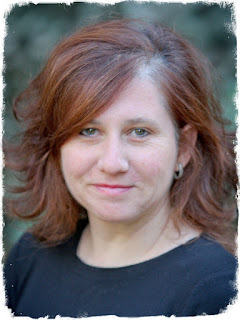Rabbi Yakov Nagen: "Connect!"
Rabbi Dr. Yakov Meir Nagen is an Israeli Rabbi
and author. Rabbi Nagen teaches at Yeshivat Otniel and has written extensively
about Jewish philosophy and Talmud. He is a leader in interfaith peace
initiatives between Judaism and Islam and in encounters between Judaism and
Eastern religions. Nagen is also the Director of the Blickle Institute for Interfaith
Dialogue and the Beit Midrash for Judaism and Humanity.
Many of his writings
have been translated into Chinese, and he was profiled in Tablet magazine as
one of the ten “Israeli Rabbis You Should Know.” Rabbi Nagen’s website is http://yakovnagen.com/index.php/english .
1. What was a place, person or event that transformed
your ideas, thinking, or perspective?
Rabbi Menachem
Froman inspired me to become part of the Interfaith Peace movement. His great
insight was that if religion is part of the problem, it will have to be part of
the solution.
2. What (Jewish) message does
the world need to hear?
In our time, the Abrahamic
religions must realize that we are no longer in competition with one another.
Our challenge is facing a world that is primarily secular. By respecting each
other, we can show that each of our stories is part of a larger story. In that
context we are more significant.
3. How has failing to achieve a goal prepared you for
the next challenge?
When debating with others,
if I have any anger, we never get anywhere. Using non-violent communication and
believing connection before correction allows me to connect to the other. This
often leads to discussions where the other becomes a brother.
4.
If you
were to give advice to your younger self, what would it be?
Whatever you think you’re
going to be doing in life, you’ll probably end up doing something very
different. So try to become as broad as possible so you’ll have the resources
to build the future you ultimately will arrive at.
5. What is one way you spoil yourself a little?
There are some comics I
like such as The Far Side and Calvin and Hobbes that I study in great depth.
6. How do you get back on track if you have had an unproductive
or distracted period?
If I’m off track, I get a
really good night’s sleep. When you’re fully awake, you get so much more
accomplished.
7.
What’s
the best piece of advice you ever received?
At my 30th
birthday, my grandmother-in-law said to me that the years between 30 and 40 are
the most important of your life - use them well. That was a great piece of
advice. I wish she was still alive when I became 40. Then she could tell me
that really between 40 and 50 are the greatest years of your life.
8.
What do
you consider your biggest achievement in the last 5-10 years?
I am grateful
that Ohr Torah Stone opened two new institutions – the Beit Midrash for Judaism
and Humanity and the Blickle institute for Interfaith Dialogue which I founded
and head. This will allow me to promote my interfaith work.
9. What area do Rabanim/teachers not stress enough?
I think Rabbis often talk about family values but don’t always give priority to working with their own families. As Gandhi said “Be the change you want to see in the world”. Therefore I think the priority should be family first even for Rabbis who want to serve communities.
What part of Jewish learning is your main focus or favourite? How would you recommend people to get more deeply into it?
The Zohar opens up my heart to Hakadosh Baruch Hu, the Jewish people and the world. Fortunately we live in a time when there is a marvelous new translation which makes it more accessible for English speakers.
1.
I have often thought that we in the modern orthodox community are
walking a tightrope between different worlds both of which we want to belong to
and be active in which may detract from our full attention to one or the other
particularly to the Jewish side. Can you give some ideas or direction how to
connect more deeply to the Torah and Hashem? (Books, ideas, programmes,
activities)
In modern orthodox Jewry especially amongst English speakers, our
education is very text-oriented. Too little do we talk about the Ribono shel
Olam and work on developing our conception of the Divine, of G-d. In a secular
world, we need to expand our consciousness to relate to G-d and this will
require learning and thinking more about G-d.




Comments
Post a Comment